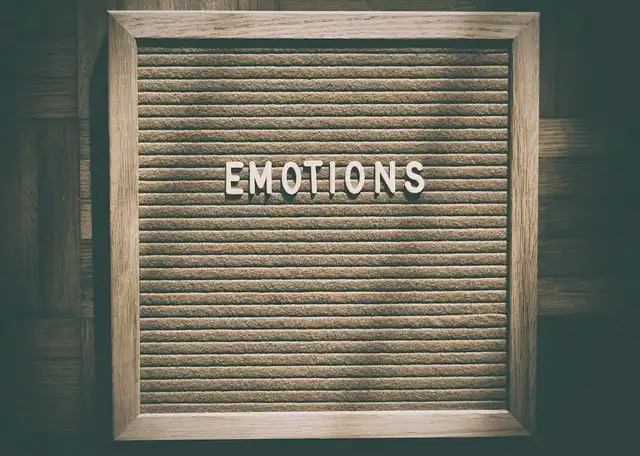
When you are a part of a discussion that all of a sudden feels heated or hefty, seek understanding before reacting. Ask yourself: How can I better understand this person’s viewpoint, their tale, instead than shutting them down or adding to harmful discussion?
Take a “meta moment.” Not every discussion will certainly stay calm. When warmed minutes happen, as they typically do, motivate yourself and students to pause, take a breath deep, and assume: What would my best self do today?
Educators get on edge, and some believe the response to browsing everything is maintaining mum. A survey from the EdWeek Proving ground discovered that 58 percent of K-12 educators do not prepare to talk about the election this fall, with 22 percent believing it “can cause moms and dad problems,” and 19 percent reporting that they do not believe their “trainees can review this subject with one another in a considerate manner.”
While there is no such point as a negative feeling, there are harmful ways to regulate an emotion. If you long for a changed world in light of this political election period or merely an altered class– one with more listening and seeing, much less judging– then the modification starts with you.
Withstand the “us versus them” attitude and exercise judgment without being judgmental. It’s possible to involve with diverse viewpoints without forecasting one point of view as “correct.” Youth gravitate towards those that model compassion and approval, who they feel psychologically secure with, not judged by. In doing so, they instruct all of us a valuable lesson: Although judgment is a necessary part of everyday life, being judgmental is not.
When comments from children, associates, or moms and dads leave you really feeling drained or livid, time out and consider: What does my best self look like in my role as a teacher? Can I reveal compassion rather of yelling or making a snarky resurgence?
Marc A. Brackett is the founding supervisor of the Yale Center for Emotional Knowledge, a teacher in the Child Research Facility at the college, lead designer of RULER, an evidence-based strategy to social and psychological understanding, and the writer of Approval to Feel (Celadon, 2019). Robin Stern is the co-founder and elderly adviser to the supervisor of the Yale Facility for Emotional Intelligence, a psychoanalyst secretive technique, the author of The Gaslight Result Recuperation Guide (Rodale, 2023), and the host of “The Gaslight Effect” podcast.
This election season is a critical suggestion that the elephants in the class are not ours to control but instead to manage properly. At the end of the day, psychological knowledge does not assure any type of remedy for the department of our modern times, but it does assure a blueprint for cultivating cultures of better understanding.
In a time when point of views can really feel like reality, be a student as well as an unlearner. Class aren’t simply rooms to grow intellectual curiosity yet psychological curiosity, too. When you are a part of a discussion that instantly feels heavy or warmed, seek understanding prior to reacting. When comments from moms and dads, colleagues, or youngsters leave you feeling drained pipes or livid, time out and think about: What does my finest self look like in my duty as an educator? These can be practical emotional stimulants versus harm and injustices.
I can tell you feel highly concerning this. How do you believe that’s influencing the discussion?”
There is nothing wrong with feeling mad or dismayed. Undoubtedly, these can be valuable psychological stimulants against injury and injustices. But channeling our ideal self may be the difference between a positive reaction and, say, crazily snapping in the center of course.
It starts with you: Method and design your abilities usually. The techniques we’ve supplied here might seem as well simplified. Yet, as lots of discussions-turned-arguments have actually confirmed, these methods are far from easy to live out. Being emotionally intelligent takes work.
For educators, this is finest designed with students through narrative and recognition. Rather than trying to de-escalate arguments once it’s “too late,” educators ought to intervene early, narrating that the discussion had actually become stressful, recognizing the students’ big feelings at play, and confirming their enthusiasm and involvement while enhancing expectations of effective discussion. (Naturally, interventions will differ depending on the seriousness of the circumstance, yet being positive is important.).
Currently is the moment for emotional knowledge– and the infusion of it in K-12 institutions (or else understood to educators as social and emotional discovering, or SEL)– to integrate the gap produced by varying ideas. Here’s exactly how.
As teachers usher pupils right into their class every day, smiling and high-fiving them at the door, it can feel like elephants are strolling right into the classroom with them. And while this is neither the first time our country has actually browsed deep department nor most likely the last, tensions are high, and understandably so.
In a time when point of views can feel like reality, be a learner in addition to an unlearner. Whether the teacher or the pupil, feelings influence every choice we do or do not make. Emotions however influence exactly how we’re regarded by and interact with others when we stop working to recognize and honor them in daily life. Classrooms aren’t just areas to cultivate intellectual interest but emotional curiosity, too. They are rooms where trainees can discover the abilities that center the person first, not the subject, and where differences can be interacted with quality and regard.
Thankfully, the science of emotional intelligence– the frame of mind, abilities, and approaches that help us identify and manage our very own feelings and the feelings of others– provides a method ahead in managing these gritty discussions. In practice, psychological knowledge permits us to tune right into one more person’s feelings and get their point of view, seeking to understand rather than safeguarding in position with like-minded individuals, who really feel risk-free and comfortable.
Your “best self” is an individual representation of exactly how you want to be when you go to your finest and just how you desire others to seeyou. Finest self is an essential element of the meta moment, a method to stop, take a breath, and reconnect with your worths in times of extreme sensation.
1 Child Study Center2 Effect Recovery Guide
3 Gaslight Effect Recovery
« What Happened When A District Put Struggling Students in Regular Algebra?Data-powered engagement: How 2 higher ed institutions use data to drive student enrollment and retention »
